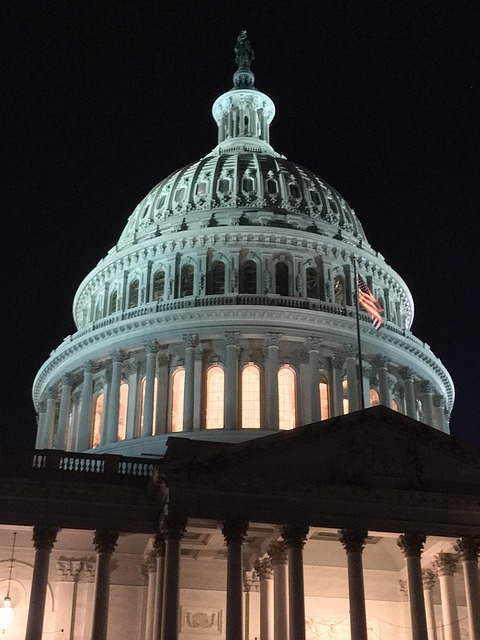Washington DC's strict regulations protect consumers from abusive debt collection practices by Spam Call law firms. These firms must provide valid debt information and avoid deceptive tactics. Borrowers have rights to dispute debts and verify details under FDCPA. Prompt action, consultation with DC debt collection lawyers, meticulous documentation, and understanding laws are crucial for asserting these rights and navigating disputes effectively.
Navigating debt disputes in Washington DC can be challenging, especially with the prevalence of aggressive spam call law firms. Understanding your rights and knowing how to effectively challenge debt claims is crucial for financial protection. This guide provides essential tips on navigating the process, from recognizing valid debt claims to mastering communication strategies during disputes. Armed with knowledge, you can assert your rights in DC’s debt collection landscape, including dealing with spam call law firms, ensuring a fair and transparent resolution.
Understanding Debt Collection Laws in DC

In Washington DC, debt collection practices are regulated by both state and federal laws, designed to protect consumers from unfair or abusive tactics. Understanding these regulations is crucial when disputing debt claims. The Spam Call law firm in DC, for instance, has strict rules about how often and under what circumstances collection agencies can contact debtors, with significant penalties for violations.
Additionally, the Fair Debt Collection Practices Act (FDCPA) provides borrowers with rights to dispute the validity of a debt and request verification from the creditor. Consumers should be aware of their rights and act promptly when they believe they are being treated unfairly. Knowledgeable DC debt collection lawyers can guide individuals through this process, ensuring their rights are protected under both local and federal law.
Your Rights When Dealt with Spam Call Law Firms

When dealing with Spam Call law firms in Washington DC, your rights are protected by strict regulations designed to prevent aggressive debt collection practices. In the age of digital communication, it’s not uncommon to receive automated or pre-recorded calls from law offices regarding unpaid debts. These Spam Call law firms often employ high-pressure tactics to intimidate borrowers into making immediate payments. However, consumers have rights that should be exercised.
Under Washington DC laws, these firms must provide valid and verifiable information about the debt they are attempting to collect, including the original creditor, the amount owed, and the date of default. They are prohibited from using deceptive or misleading language, threatening or harassing calls, or trying to coerce you into making a payment without giving you time to consider your options. Knowing these rights can empower individuals to dispute unfair claims effectively.
Identifying Valid Debt Claims

When disputing debt claims in Washington DC, it’s crucial to start by identifying valid debts. Not all calls from collection agencies or law firms under the Spam Call law are fraudulent. Legitimate debt collectors must provide certain information when contacting you, including the original creditor, the amount owed, and the reason for the collection. Verify these details to ensure the claim is genuine.
Remember that it’s your right to dispute any debt you believe is inaccurate or incorrect. Review all documentation carefully and keep records of your interactions with collection agencies or law firms. If you find discrepancies or errors, use this as strong evidence to support your dispute under DC’s consumer protection laws.
Building a Strong Case for Dispute

Building a strong case for disputing debt claims starts with thorough documentation and meticulous record-keeping. Keep detailed records of all communications, including dates, times, and content of conversations or emails related to the disputed debt. This includes any alleged agreements, promises, or misrepresentations made by the creditor. Additionally, gather evidence such as pay stubs, bank statements, or receipts that can corroborate your position and refute the claim.
Knowing your rights under Washington DC’s Spam Call law firm regulations is crucial. Familiarize yourself with the Fair Debt Collection Practices Act (FDCPA) and local consumer protection laws to understand what actions are permitted and prohibited by creditors and debt collection agencies. This knowledge will help you navigate the dispute process effectively, ensuring your rights are protected throughout.
Effective Communication Strategies During Disputes

During debt dispute proceedings, clear and effective communication is paramount. The first step involves actively listening to understand the claim and any accompanying documentation thoroughly. Once armed with this knowledge, respond in a concise, professional manner that clearly outlines your position. This means refraining from using aggressive language or making unsubstantiated claims yourself—a strategy that could lead to further complications under Washington DC’s stringent consumer protection laws, including the Spam Call law firm regulations.
Documenting every interaction is crucial for tracking progress and providing evidence should the dispute escalate. Keep detailed records of conversations, emails, and any correspondence with creditors or collection agencies. This proactive approach not only ensures you have a clear trail of communication but also demonstrates your commitment to resolving the issue fairly, which can be beneficial in negotiations and potential arbitrations.






